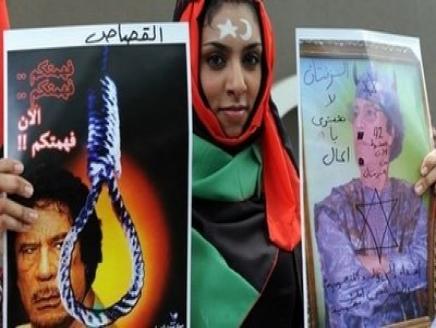The Arab League holds key talks on the conflict in member state Libya, backs a no-fly zone over the country to ramp up the pressure on strongman Moamer Gaddafi
The Arab League resigned once again from its duties as it held on Saturday key talks on the conflict in member state Libya, in which it backed a no-fly zone over the country to ramp up the pressure on strongman Moamer Gaddafi.
Secretary General Amr Mussa called for a no-fly zone and said he wants the pan-Arab organization to play a role in imposing it, in an interview published Saturday. "The United Nations, the Arab League, the African Union, the Europeans -- everyone should participate," Mussa told German weekly Der Spiegel
"I am talking about a humanitarian action. It consists, with a no-fly zone, of supporting the Libyan people in their fight for freedom against a regime that is more and more disdainful." Mussa said Gaddafi was showing a lack of the "awareness that presidents Zine El Abidine Ben Ali in Tunisia and Hosni Mubarak in Egypt demonstrated by resigning" and predicted more revolts in the Arab world.
AL SUPPORTS NO-FLY ZONE
Diplomats in Cairo said the Arab League in crisis talks came out in support of plans to impose a no-fly zone over Libya and decided to make contact with the demonstrators’ provisional national council.
Arab League foreign ministers "have agreed to invite the (UN) Security Council to assume its responsibilities and impose an air-exclusion zone to protect the people of Libya," one diplomat said on condition of anonymity.
The decision was adopted by nine of the 11 foreign ministers attending the meeting at the organization's headquarters in the Egyptian capital from which Libyan envoys were excluded, with Algeria and Syria voting against, he said.
"The ministers also decided to open channels to contact the transitional national council in Libya in order to help the Libyan people," the diplomat added.
OBAMA: WORLD TIGHTENEING NOOSE ON GADDAFI
US President Barack Obama said Friday the world was "tightening the noose" on Gaddafi, but admitted he was "concerned" the Libyan strongman could thwart protesters battling to oust him. Obama announced he would appoint an envoy to Libyan opposition forces as part of a bid to "change the balance" of the military situation in Libya, and warned the world had an obligation to avoid a massacre.
The European Union also stressed the need for "a clear legal basis and support from the region", reflecting divisions over the advisability of military intervention.
CLASHES ONGOING
In Libya, Gaddafi's warplanes bombed opposition fighters as his forces tried to press the initiative won in recent victories. Fighters said fighting had flared again in the key eastern oil hub and frontline town of Ras Lanuf, after most of them were driven out in a fierce battle on Thursday after holding it for a week.
In the western city of Zawhiya, Gaddafi's troops fired in the air Friday to celebrate the capture of the opposition stronghold, which put up a fierce two-week resistance.
But in eastern, opposition-held Benghazi, up to 10,000 people poured into the streets on Friday in a carnival-like atmosphere, calling for Gaddafi to go and praying for victory.
In Tripoli, Libya had suspended diplomatic relations with France after Paris recognized the national council a day earlier.
